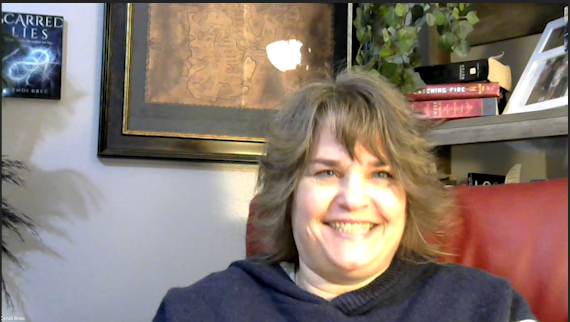Why teenagers aren't ruining the English language

The information in this article is from a 2016 study, but we believe it is still relevant at the time of this article. The article is referring to this study in the 2023 era, with TikTok and short-form content becoming the norm.
Teenage slang is often extremely confusing to adults and seems completely different. From texting to joking around, no one beyond Gen Z understands what we're saying. This new change is alarming to a lot of people who think that the way we talk could be ruining the English language. But let's take a look at the slang and the past to see how the language has evolved.
In fact, the modern English we use today contains words like "google", "cool", and "rad". These words are all part of slang from the past that we still choose to use today. Throughout our daily conversations, there are limitless areas where the English language has adapted through generations.
With the invention of the internet and growing in a world surrounded by technology, slang has become more prevalent than ever. In fact, let's take a look at some of the most popular slang nowadays:
"Slay" - To do something well
"Go off" - Angrily complain about something
"Sike" - A word used to prank someone similar to saying "just kidding"
You can see a lot more words throughout social media such as "TikTok". The use of abbreviations and shorthand words has been prevalent after the growth of texting from 2007 onward. In the world and childhood we've lived, we've been living around a world with the internet and technology all around us. These have created a culture around this stuff with memes, TikToks, and Instagram. With these platforms, slang has been extremely prevalent. But a 2016 study by the Kansas State University's linguistics department reveals that the vocabulary among teenagers actually isn't actually changing the language itself or causing its downfall.
Mary Kohn, the Assistant Professor of English at the university stated "People my age and older have had fits about how young people are using language and how they're destroying language, and yet we've continued as humans to speak for centuries for millennia so clearly this natural process of language change isn't destroying language any more than any other kind of cultural change is destroying us as humans it's just a part of being human is part of the human story," showing how she believes that the change isn't going to cause the fall of the English language.
The English language is nobody’s special property. It is the property of the imagination: it is the property of the language itself. — Derek Walcott.
The study mainly constituted around answering language questions about changes and seeing if there was really a noticeable change among teenagers. The study found that there indeed was no remarkable change in the English language among teenagers. Kohn actually discussed throughout the video how she believes that playing with the language (using slang) is important in developing communication skills. She sees teenagers and their slang as a good thing because she thinks it helps people communicate better and appeal to their audience. She also described how the settings teenagers are in play a vital role, where things would be much different if they were in a professional work setting versus where a lot of their slang is used, which is within schools.
It's time to end the stigma of teenagers and their language. This is our way of communicating with each other and feeling comfortable with each other, which is more important than living in an environment where we have to be uncomfortable and formal all the time. Shorthand and slang are used because they are fun and widely understood, and they aren't meant for previous generations. Now more than ever its time to reopen this conversation, as after 2016, TikTok and so many new platforms have emerged, and once again people are getting annoyed at what they think are "teenagers destroying the English language", but the reminder is once again here that the study and facts show this is further from the truth. With tools like the Urban Dictionary understanding slang isn't even that hard. Even as a teenager sometimes I need to understand new abbreviations and slang. But this is what makes the internet and the world around us interesting because slang helps build a culture and understanding among each other. Over time our slang will change to adapt to the formal settings we will be placed in. It's important to remember that what you see from this generation on TikTok and other media isn't what you will see when you talk to the same people in the real world.
The conclusion is that there's nothing lazy about the way teenagers speak, the change is the same change that has been going on in this language for years. There's also nothing lazy about using slang, as shown in Kansas University study, we can see that slang is a core part of youth culture and an important part as well. It's also important to recognize that slang has occurred in almost every single era, from the 60s to the 90s. As Parent.com stated, "Think it's obvi that teens are destroying language with all their slang and internet acronyms? JSYK, according to new research, that assumption is old AF, " Whether it's 2016 or 2023, the point still remains.
What is the shortest word in the English language that contains the letters: abcdef? Answer: feedback. Don’t forget that feedback is one of the essential elements of good communication. — Author Unknown.
Find an issue with this article? Message us at [email protected] to report it!




